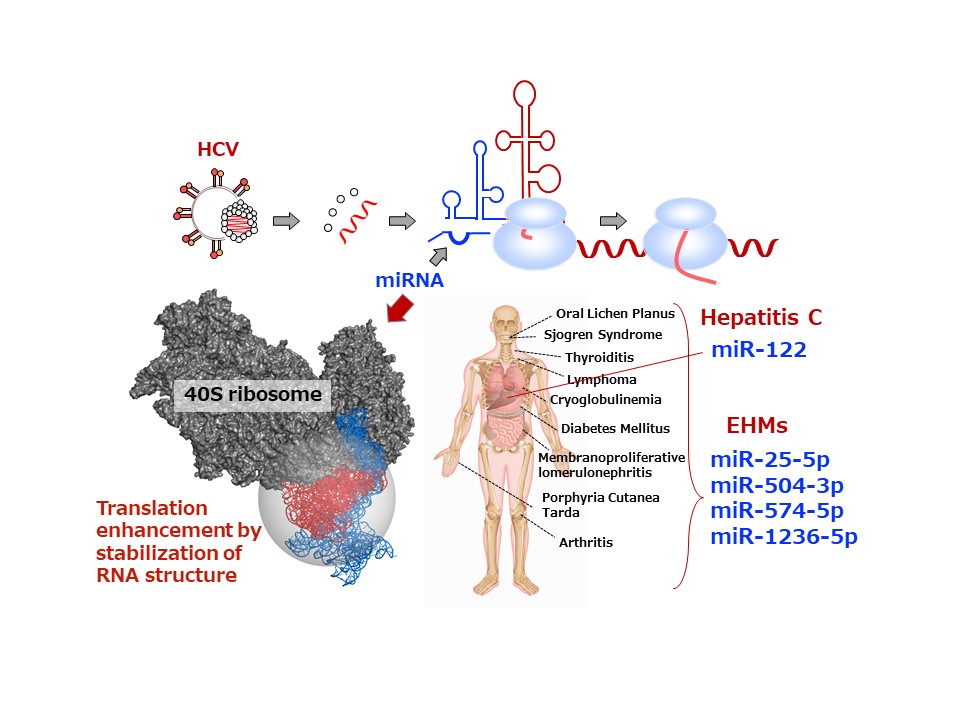Various miRNAs compensate the role of miR-122 on HCV replication (from Matsuura Lab, in PLOS Pathog.)
A liver-specific microRNA, miR-122, is one of the key determinants of hepatitis C virus (HCV) hepatotropism and is required for efficient propagation of HCV. On the other hand, chronic infection with HCV is often associated with extrahepatic manifestations. Previously, we have reported that HCV can replicate in miR-122-deficient condition such as non-hepatic tissues, resulting in the emergence of mutant virus that can propagate in miR-122-independent manner. Therefore, in this study, we screened miRNAs that could enhance HCV-RNA replication other than miR-122. As a result, we identified at least 5 miRNAs that can support efficient replication of HCV-RNA in non-hepatic cells and showed that they could be divided into two groups: those that bind HCV-RNA at two locations in a manner similar to miR-122 (miR-122-like), and those that target a single site (non-miR-122-like). Furthermore, the simulation using a 3D modeling indicated that both types of miRNAs can stabilize the structure of HCV-RNA in order to facilitate binding to the ribosome, which is required for translation. These observations suggest that these microRNAs may slightly maintain viral RNA in non-hepatic tissues and contribute to the emergence of mutant HCV that is able to propagate in miR-122-independent manner.
Links
- Home
- Achievement
- Research Activities
- Various miRNAs compensate the role of miR-122 on HCV replication (from Matsuura Lab, in PLOS Pathog.)








